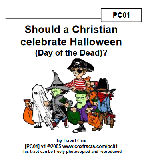What do false prophets want? These are reflective, meditative thoughts about false prophets in our churches. What is it that a false teacher seeks when he or she takes the place of a real pastor?
What a true man of God seeks out of the ministry
We need to begin with the positive. First of all, a true man of God is called by God to be a minister and serve God. It is assumed that God will provide for him and his family, but that most probably will not “get rich” in the ministry. Anybody that goes into the ministry to get rich is just wrong and misguided.
There is the divine calling, and then there is the satisfaction that a true man of God is blessing others in his labors. A true man of God is not self-centered and concerned always and foremost with his own benefits and blessing back to him. This is very distinctive. A man of God really likes blessings back to him but from blessing others. A false prophet is concerned not with “spiritual type” blessings but with other things, like cold hard cash, fame and glory, and an unhealthy zeal for power and control.
What do false prophets want? Money, riches
For the vast majority of these False prophets what they want is money. They dream of riches. You can tell that the preacher is a false prophet because he is always talking and preaching and teaching about money and riches and well-being.
Christians are not given to glory in pleasure and luxuries in this life, but to use everything God gives us to work for heaven. Their working premise is “I am a beloved child of God, therefore God wants to give me all my desires.” What happened to suffer with Christ as a child of God, so that we can reign in glory (heaven) with Him? No, they don’t like to accept the thought that we are here to suffer, and much more than just what happens to us, that is God’s will for our lives! The idea that God would send poverty to one of his children like Lazarus and the rich man is beyond their abilities to capture. They defend their line of thought with, “Well Lazarus didn’t take opportunities that God offered to him obviously.”
We turn to the story of Ruth or Job, and the suffering and poverty in both cases were parts of God’s plans for those people. The false prophet cannot understand that. He is blinded to all such things in God’s will, and he can only see riches and health. This “blindness” is because of a single factor, the false prophet wants to use God to advance the false prophet’s will and desires, and not God’s.
But just survey what you hear typically from your preacher in a year. Men of God do preach on money and possessions. They should. That is of God. But the underlying idea is not to make you rich but to correctly, biblically steward what you have from God. The preacher should receive something for his labors. But to make him wealthy is unwise. Consider, would you think God would be happier if you gave your preacher a liveable salary and then $250,000 more? or Would God be happier if you paid 5 more ministers to come in as evangelists? or missionaries? or pastors to minister to the needs of your own church (like old folks pastor, teens, or even Christian school teachers)?
A false prophet will press the church on giving that money to him instead of more workers.
What do false prophets want? Power and Glory
A second driving force in false prophets is to look or after the money to power and glory. I say after money because once a false prophet gets a salary that will make him rich, he is not satisfied with “just” that, but he also wants total control of the lives of those in his power (congregation).
This actually begins in the pulpit. The false prophet tells other people what the Bible says they should do, but very subtly that changes to his own interpretation of the Bible as becoming infallible. No one can countermand his positions and commandments. To do so is to oppose God himself. (The false prophet stepping aside at this moment telling you that he is just God’s mouthpiece, and your opposition is to God.)
But the point here is how does God speak to us (his children), to the church? It probably is not by the visions of the pastor. This is how the false prophet wants God’s people to believe, it is through his vision alone.
God first of all speaks to us through the Scriptures. If there is a commandment of God to do something for us in the New Testament age, then it is legitimate to press the church to do it. We should pray, read our Bibles, and study our Bibles, witness, be holy, etc. There is nothing wrong with a pastor or preacher emphasizing these things. But when the preacher starts to press the church people for things that are not exactly for us, then we see where the congregation begins to be used by God. If the preacher can convince the congregation to give “in goodwill”, then maybe it is of God. But so many times there are voices of descent and opposition. Wise leaders go very slowly when a goodly portion of people “are not onboard.”
If the pastor cannot pay for a new building project out of his own pocket, both from a money standpoint and willingness to sacrifice standpoint, then he must depend on his church to shoulder the burden across all of them. So if they don’t see why, he should go very slow or just put it off. His “power” is actually shared with the other church leaders and pillars. Convince your people then see if they want to go down that road.
I have personally seen the destruction of unwise pastors over the years. They have gotten churches into million-dollar building programs, and the majority of the church tithers left, and those who didn’t leave had to shoulder the financial chaos. Without a doubt, the foolish pastor that got the church into this situation also leaves. The name of the Lord is drug through the mud. Why all of this? Very simply. The false prophet wanted people to see his name associated with a huge building with lots of people and more, for that pastor’s personal glory.
So what happens to evangelism, to Bible teaching, to prayer in these churches. 1) People leave, and often innocent good laborers for the Lord leave the church. 2) Prayer changes from prayer for salvation, prayer for healing, prayer for missionaries, to pray that we make the monthly payment on the new building. 3) Finances go from missions and staff to mortgage payments. In other words, they effectively destroyed the ministry of that church. Short of putting all the key members into jail, how else can you destroy a church so well?
What do false prophets want? Sex, Control over the lives of others
There are cases of false prophets taking advantage of women in their churches. When the pastor gets ideas of authority, and by that, I mean “HIS” authority over the other members of the church, then they entertain ideas of pleasure with other men’s wives or daughters.
What is incredible here is that there are actually churches, and people in these churches that defend these false prophets after it comes to light that they had sex with other women.
Conclusion
It is not difficult to evaluate and see what are the main points of focus of a pastor. Some pray and want their congregations to also pray with them. Others want to back missions. Others want to evangelize their communities. All of these focuses are valid and perhaps they are all wrong if they do not at least partially focus on the others. But when a pastor focuses on money, his authority, or the greatness of he and his church instead of Christ and God’s people, then something is wrong. Distance is the only good solution here.
Read Tracts about False Prophets and the True Man of God
More Articles on False Prophets and False Teacher










